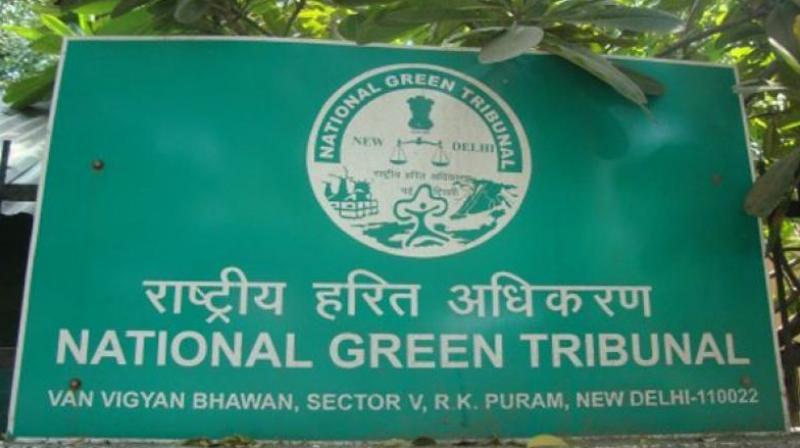National Green Tribunal rap when bodies fail on their duties
At the root of this problem lies the fact that the petitions reach the NGT after work has begun on a project.;

HYDERABAD: Government officials and private companies often see red when the National Green Tribunal steps in to stop work on an ongoing project. These entities complain that the NGT, established in 2010 for speedy disposal of cases related to environment protection, denies clearances midway through projects. At the root of this problem lies the fact that the petitions reach the NGT after work has begun on a project.
Dr R. Nagendran, an expert member of NGT’s southern bench said, “The NGT is not an agency that gives clearances. We step in when anyone from a list of authorities, including the Pollution Control Board, gives sanction to a project that violates environmental rules.” The complaints are often filed by citizens when they see illegal structures or mass deforestation and other transgressions.
“Citizens can file cases under the Precautionary Principle which is a complaint filed even before construction has started. Mostly, complaints come in midway through a project, which causes delay. Constant vigilance by citizens is required to ensure that illegal projects do not begin to take shape even before the NGT can step in,” said environmentalist Purushotham Reddy. The delay in adjudicating cases by NGT is also because of the number of pending complaints.
“The tribunal gets a lot of cases. We have to check for violations before giving an order. It takes time before we issue a stay and in the meantime the work continues,” said a retired official from NGT. Mr B. Harshvardhan Reddy, an advocate, said, “The clearances issued by the government should be checked to ensure that there is no direct violation of the law. A body like NGT has to step in because the other bodies fail to do their duty.”
He has challenged the action of the government in clearing 279 hectares of forest without obtaining environmental clearances. An official of the NGT said that with more regional offices, cases can be dealt with faster. “Any government activity is undertaken after a public hearing by the executive body. Cases are notified to the NGT by citizens only after the hearing. The NGT does take up cases suo motu after learning about it from the media and so on. The NGT has proposed to open a body in Telangana state. Regional offices could lead to faster resolution of cases that are taken up suo motu as they can concentrate on one region,” Mr Purushotham Reddy said.
The Pollution Control Board, one of the bodies to give clearance for projects, washes its hands off environmental clearance. Mr N. Ranveendhar, official at the Pollution Control Board said, “We give consent for construction after the environmental committee gives clearance. There are state environment committees for smaller projects. We deal with cases that have passed their tests.”

